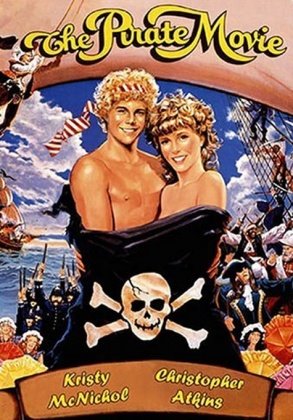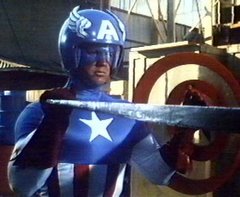 Film versions of Broadway musicals are a little like recordings of concerts. They've been cleaned up a bit, tweaked here and there and generally polished to a blinding sheen.
Film versions of Broadway musicals are a little like recordings of concerts. They've been cleaned up a bit, tweaked here and there and generally polished to a blinding sheen.But this also takes away from the grit and grime of live performances that adds to the overall thrill.
Just look at the graveyard of movie musicals based on plays throughout the past few years -- “Rent,” “Phantom of the Opera” and “The Producers” are but a few (personally, I'd toss “Dreamgirls” in there, too).
Lucky for “Hairspray” though, it's roots are showing. For it began as a film, and sculpted by the grandaddy of garish garbage and glee, John Waters. After having plumbed the depths of depravity with films such as “Pink Flamingos,” “Female Trouble” and “Desperate Living,” the director's 1988 original was perhaps his most mainstream film, but it still had the tart wit and social commentary for which Waters was well-known.
That Waters vibe can be felt throughout this latest incarnation of “Hairspray” (the director even turns up for a hysterical cameo in the film's infectious opening number “Good Morning, Baltimore.”
But those who never quite enjoyed a drink from Water's cinematic well (some may say septic tank), the auteur's presence should not be a deterrent from viewing perhaps the most bubbly fun to be had at the movies so far this summer.
Following the early '60s life of young zaftig Tracy Turnblad (played by newcomer Nikki Blonsky), a marshmallow of a teen whose sole reason for living is to dance. Her main outlet to shake her generous assets is “The Corny Collins Show,” a televised Baltimore dance program where the local kids go to get their groove on.
One day a week is deigned “Negro Day,” in which local black kids can break out and boogie, so long as the floor is cleared of all white kids. The day further starches the shirts of the local programmers, including manager Velma Von Tussle (played by a much-welcomed-back Michelle Pfeiffer) who does not want her daughter's chances to be crowned the show's Miss Baltimore Crabs sullied by some dark-skinned hooligans. For the kids, of course, this day is the soul of the show, where the latest, most mod moves are on proud display.
The chubby Tracy is an outcast herself in the squeaky clean, model-thin world of TV. She soon befriends Seaweed (played by electric newcomer Elijah Kelley), one of the featured dancers on Negro Day, and the son of the day's host Motormouth Maybelle (played by magnetic-but-underused Queen Latifah).
After learning a few bold moves from her new friends, Tracy earns a spot on the show and her care-free hip-swiveling is soon earning her fans from all over the city, hon.
With the help of her best friend Penny (played by Amanda Bynes) and her parents, Tracy is determined to integrate the show, regardless of the consequences.
The flick's philosophy is one of being comfortable with who you are – regardless of size, age, race, etc. -- and there is room for everyone out there on life's dance floor. But the film never once feels preachy or synthetic, and composers Marc Shaiman and Scott Williams have ensured that you will be too busy getting caught up in the music to let things get too heavy-handed.
There is just one element of the film you may have noticed that I have yet to bring up, and that is because I really do not know what to make of it. John Travolta as Edna Turnblad – packed behind pounds of latex – a muumuu-clad mama made famous by the late Divine. His beady little eyes look like two raisins in a sea of pancake batter plastering his face. His efforts to acquire a Bal'more accent are quite distracting as well.
There are a few moments in which he once again captures that “Grease” -era exuberance, not necessarily in a dance number, but in his more tender moments as Tracy's shut-in mother. It is certainly his best performance in years, yet it was still difficult to lose sight of the fact that it was John Travolta in a fat suit (in contrast, Eddie Murphy became several diverse family members hidden behind his makeup in “The Nutty Professor”). The one time that Travolta ceases to be an actor in drag is perhaps the film's best number, a touching duet with husband Wilbur (played with feather-light feet by Christopher Walken), as they celebrate growing older with one that you love.
Overall, though, the film is completely engaging, bubbling over with heart and song, and this “Hairspary” will hold up long after leaving the theater.





No comments:
Post a Comment